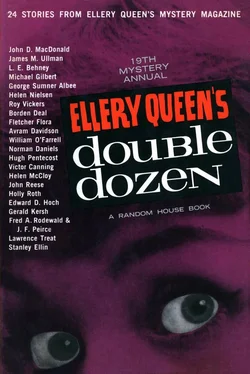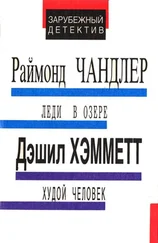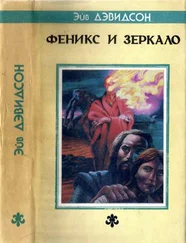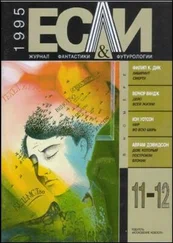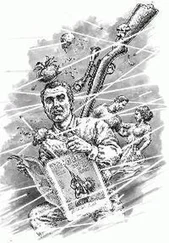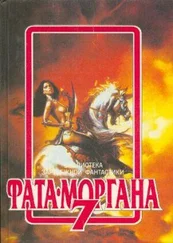“For what?”
“Despite the fact that your face might have had a suitable effect on a jury, your parents were unsuitably well-to-do. You lacked motive to kill her, and motive to murder her was one of the qualifications for marriage.”
He watched realization dawn on me, smiled, and then became businesslike. “Do you, Mr. Dentelle, wish formally to charge that you believe murder was done to one Baron Paul — we must get that last name — that murder was done to one Baron Paul Something, in the city of Cannes, France, in the year nineteen hundred and forty-seven?”
“I do.”
He took the phone off the hook.
Edward D. Hoch
I’d Know You Anywhere
A powerful story — one of the most powerful Ellery Queen’s Mystery Magazine has published in some time... a memorable story... a story that anthologists will be reprinting for years to come... a story which marks, we think, a turning point in Mr. Hoch’s writing career...
* * *
16 November 1942
From the top of the dune there was nothing to be seen in any direction — nothing but the unchanging, ever-changing sameness of the African desert. Contrell wiped the sweat-caked sand from his face and signaled the others to advance. The tank, a sick sad monster wanting only to be left to die, ground slowly into life, throwing twin fountains of sand from the path of its tracks.
“See anything?” Grove asked, coming up behind him.
“Nothing. No Germans, no Italians, not even any Arabs.”
Willy Grove unslung the carbine from his shoulder. “They should be here. Our planes spotted them heading this way.”
Contrell grunted. “With old Bertha in the shape she is, we’d be better off not running into them. Six men and a battered old tank against the pride of Rommel’s Afrika Korps.”
“But they’re retreating and we’re not, remember. They just might be all set to surrender.”
“Sure they might,” Contrell agreed uncertainly. He’d known Willy Grove — his full name was an impossible Willoughby McSwing Grove — for only a month, since they’d been thrown together shortly before the North African invasion. His first impression had been of a man like himself, drafted in his early twenties into an impossible war that threatened to envelop them all in blood and flame. But as the weeks passed, another Willy Grove had gradually become evident, one that stood next to him now, peering down into the empty, sand-swept valley before them.
“Damn! Where are they, anyway?”
“You sound like you’re ready for a battle. Hell, If I saw them coming I think I’d run the other way.” Contrell took out the remains of a battered and almost empty pack of cigarettes. “A sand dune on the Tunisia border is no place for a couple of corporals.”
Grove squatted down on his haunches, resting the carbine lightly against his knee. “You’re right there — about the corporal part, anyway. You know, I been thinking the last few weeks — if I get back to the States in one piece I’m going to go to OCS and become an officer.”
“You found yourself a home.”
“Go on, laugh. There’s worse things a guy could do for a living.”
“Sure. He could rob banks. What in hell do army officers do when there’s no war around?”
Willy Grove thought about that. “Don’t you worry. There’s goin’ to be a war around for a good long time, maybe the rest of our lives.”
“Think Hitler will last that long?”
“Hitler, Stalin, the Japs. It’ll be somebody, don’t you worry.”
Contrell took another drag on his cigarette, then suddenly came to sharp attention. There was something moving at the top of one of the dunes, something... “Look!”
Grove brought up his binoculars. “Damn! It’s them, all right. The whole stinkin’ German army.”
Contrell dropped his cigarette and went sliding down the dune to tell the others. The officer in charge was a paste-colored captain who rode the dying tank as if it were his grave. He looked down as Contrell spoke and then spoke a sharp order. “We’ll take Bertha up the dune and let them see us. They might think we’ve got lots more and call it quits.”
“Sure. Sir.” And then again, Contrell thought, they just might blast the hell out of you.
By the time the wounded steel monster had been moved into position, the first of the three German tanks was within firing range. Contrell watched the big guns coming to bear on each other — two useless giants able only to destroy. He wondered what the world would be like if guns had the power to rebuild too. But he had little time to think about that or anything else before the German gun recoiled in a flash of power, followed an instant later by the thud of the sound wave reaching them. A blossom of sand and smoke filled the air to their left as the shell went wide of its mark.
“Hit the ground!” Grove yelled. “They’ve got us zeroed in!”
Old Bertha returned the fire, scoring a lucky near-miss on the nearest tank, but the odds and the firepower were all against her. The Germans second shell hit the left tread, the third slammed into the turret, and Bertha was as good as dead. Someone screamed — Contrell thought it might have been the captain.
Grove was stretched out on the sand a dozen feet away. “Damn things are iron coffins,” he said, gasping at the odor of burning flesh.
Contrell started to get up. “Did any of them get out?”
“Not a one. Stay down! They’re coming this way.”
“God!” It was a prayer on Contrell’s lips. “What’ll we do?”
“Just don’t move. I’ll get us out of this somehow.”
Two of the enemy tanks remained in the distance, while the third one — basking in its kill — moved closer. Two German soldiers were riding on its rear, and they hopped down to run ahead. One carried a rifle, the other what looked like a machine pistol to Contrell. He tensed his body for the expected shots, his face nearly buried in the sand.
The German tank commander appeared in the turret and shouted something. The soldier with the machine pistol turned — and suddenly Willy Grove was on his feet. His carbine chattered like a machine gun, cutting down the German from behind. With his left hand he hurled a grenade in the direction of the tank, then threw himself at the second German before the man could bring up his rifle.
The grenade exploded near enough to knock the officer out of action, and Contrell moved. He ran in a crouch to the German vehicle, aware that Grove was right behind him. “I got ’em both,” Willy shouted. “Stay down!” He pulled the dying officer from the top of the tank and fired a burst with his carbine into the interior. He clambered up, swinging the .50-caliber machine gun around.
“Hold it!” Contrell shouted. “They’re surrendering!”
They were indeed. The crews of the other two tanks were leaving their vehicles, coming forward across the sand, arms held high.
“Guess they had enough war,” Grove said, training the machine gun on them.
“Haven’t we all?”
Grove waited until the eight men were within a hundred feet, then his finger tightened on the trigger and a burst of sudden bullets sprayed the area. The Germans looked startled, tried to turn and run, and died like that, on their feet.
“What the hell did you do that for?” Contrell shouted, climbing up to Grove’s side. “They were surrendering!”
“Maybe. Maybe not. They might have had grenades hidden under their arms or something. Can’t take chances.”
“Are you nuts or something, Grove?”
“I’m alive, that’s the important thing.” Grove jumped down, hitting the sand with an easy, sure movement. “We tell the right kind of story, boy, and well both end up with medals.”
Читать дальше
